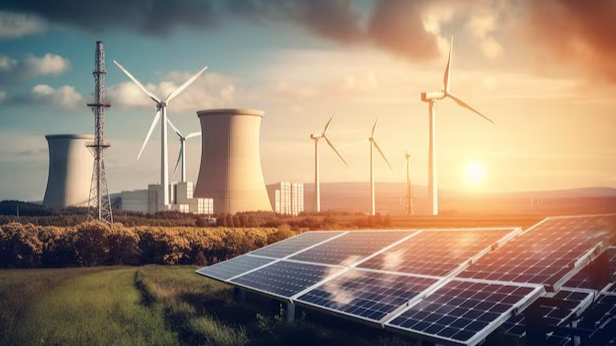Fast on its way to evolving as the global leader in renewable energy, India has set itself extremely ambitious targets for capacity additions in solar, wind, and other forms of clean energy. Towards complete exploitation of the renewable energy potential, one of the conundrums lies in its being available intermittently. One of the most significant solutions in efficiently storing and distributing the renewable energy produced across the country is the Battery Energy Storage System.
Battery Energy Storage Systems Growing in India
Battery energy storage systems (BESSs) are technology solutions that store energy that originates from various sources, even renewable energies such as solar and wind, releasing it when required. This will be a critical technology to achieve a balance between demand and supply, grid stabilization, and reliable power will be available when the sun does not shine, or the wind does not blow.
Key Drivers for BESS Adoption in India
Integration with Renewable Energy: With the rapid growth of its renewable energy capacity, integration of these sources into the national grid has become increasingly important for India. Advanced energy storage makes possible the storage of the vast excess of energy produced during peak production time and its dispatch later at peak demand times or when generation is low, ensuring a continuous and stable energy supply.

Grid stability: renewable sources like solar and wind are by nature fluctuating, leading to power supply fluctuations. This causes a variance in the power supply because the BESS draws during overproduction and gives it back when there is a shortage, creating a balanced and reliable power system.
Rural and Remote Area Support: In areas where the grid connectivity is low or unreliable, BESS can strongly ensure a stable power supply. Such systems store energy locally so that even remotely located areas have access to uniform, reliable electricity, hence bridging the energy access gap.
Cost Efficiency: Generally, the cost of battery storage technology has significantly reduced over the years, thereby making BESS increasingly viable for energy storage. This is a crucial aspect related to cost efficiencies that will foster the wide-scale application of renewable energy as clean energy solutions become available and economically viable to many more people.
Application of BESS in the Promotion of Renewable Energy in India
The successful deployment of BESS across the country is inextricably linked with the renewable energy ambitions of India. Investments made by the government and private players are already vital, and such importance is certain to increase as energy storage steps into the mainstream.
Greater Adoption of Renewable Energy: Because BESS can easily integrate into a national grid, any increased variability stemming from renewables can be balanced, allowing a more considerable use of renewable energy resources and reducing reliance on fossil fuels.
Reducing Carbon Emissions: BESS plays a key role in India’s efforts to meet its reduction goals toward generating renewable energy, thus bringing down the need for the generation of energy derived from fossil fuels, towards meeting the goals of preventing carbon emissions and coping with a changing climate.
Electric Vehicle Infrastructure Support: With India’s increasing impetus to faster adoption of electric vehicles, BESS shall play a very vital support in adding up the required infrastructure. It assures a smooth and sustainable transition to electric mobility, giving stable and reliable power to electric vehicles at EV charging stations.
Conclusion
Battery Energy Storage Systems are key to getting India from brown to green in terms of energy sources. Because BESS allows efficient energy storage and distribution of sources that are indeed renewable, it provides functionalities important for grid stabilization at large, for supporting rural/remote areas, and for enabling the renewable energy targets of the country. As India further moves toward investing in clean energy, the acceptance of BESS becomes one of the critical utilities in ensuring a reliable, cost-effective energy supply coupled with sustainable growth.
FAQs
What is BESS?
It is a technology to store the energy accumulated from all possible sources, and more so from renewable sources, like solar and wind power, and dispatch the energy at will to ensure there is a steady and sure supply of power.
How does BESS support the integration of renewable energy in India?
By storing the excess energy at times of high generation and supplying it at low generation or high demand, BESS supports the continuous and efficient use of renewable energy.
Why is BESS important for grid stability?
BESS can provide energy balance in case of fluctuations in the supplied solar and wind energies to maintain the stability of the grid.
Can BESS be used in remote areas?
Yes, BESS is very useful in remote or off-grid areas because it can store locally generated energy to have continuity of sourcing at all times.
How does BESS contribute to India’s renewable energy goals?
BESS aids in expanding the share of renewable energy because of assured supply, lower carbon emissions, and easy provisioning of infrastructure like EV charging points.
